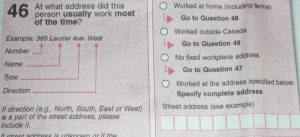
He came to my office a bit tentatively. He didn’t want to impose. It was early in the semester – back about three years ago. At the time, teaching journalism at the college where he’d enrolled, I told him it was my job to listen and offer feedback. And frankly, I told him, I welcomed the interruption. His whole face broke into a genuine smile and he settled into a chair across from me for our first conversation. Not as teacher and student, but as fellow writers.
“I know you’re an author,” he started, “and I want to write a book too. But I don’t know where to start.”
I should have asked Neil Powers, the mature student across from me in my office at Centennial College, what he wanted to write about, but I never did. (more…)
